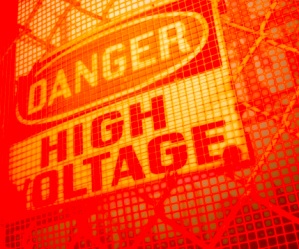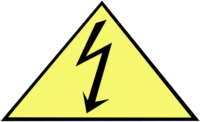 Some electrical contacts are instantly fatal, and up to 40% are ultimately fatal, according Brian James Daley, M.D, associate program director, professor, Department of Surgery, Division of Trauma and Critical Care at the University of Tennessee School of Medicine, Knoxville, Tenn., in his report, “Electrical Injuries.”
Some electrical contacts are instantly fatal, and up to 40% are ultimately fatal, according Brian James Daley, M.D, associate program director, professor, Department of Surgery, Division of Trauma and Critical Care at the University of Tennessee School of Medicine, Knoxville, Tenn., in his report, “Electrical Injuries.”
Of all industries tracked by the Bureau of Labor Statistics (BLS), the construction industry comprises the greatest number of electrical fatalities, according to Brent C. Brenner and James C. Cawley, on behalf of the Electrical Safety Foundation International (ESFI), in their report, “Occupational Electrical Injury and Fatality Trends and Statistics: 1992-2007.”
From 2003-2007, of the 1,213 occupational electrical fatalities the BLS recorded, according to the report, 52% occurred in construction, with electrical construction workers accounting for half of that.
In fact, the fatality rate involving workers coming in contact with wiring, transformers, or other electrical components — work performed by electricians and electrical contractors — accounted for 28% of electrical fatalities from 2003-2007 and is second only to the rate related to construction workers coming in contact with overhead power lines, according to ESFI.
Work involved in mechanical and electrical maintenance, including accidental electrocution due to faulty or missing grounding conductors for machines, tools, appliances, or light fixtures, accounts for 18% of electrical-related fatalities in construction, making it the third leading category.
Most victims who survive will suffer through a normal post-traumatic response, according to medical experts.
In such cases, electrical injury survivors may experience what is called “postelectric shock syndrome,” which consists of a host of persistent and progressive cognitive and psychological symptoms, resembling those in mild to moderate traumatic brain injury.
In cases of post-traumatic stress disorder (PTSD) following an electrical injury, treatment is imperative.
Chronic pain is a very common symptom for survivors of electrical contact. Immediately after the incident, narcotics may be administered. This must be carefully monitored, because in some pain cases, electrical injury may also increase risk for substance abuse, mainly through self-medication with alcohol or the overuse of prescription medications to ease the pain and suffering.



